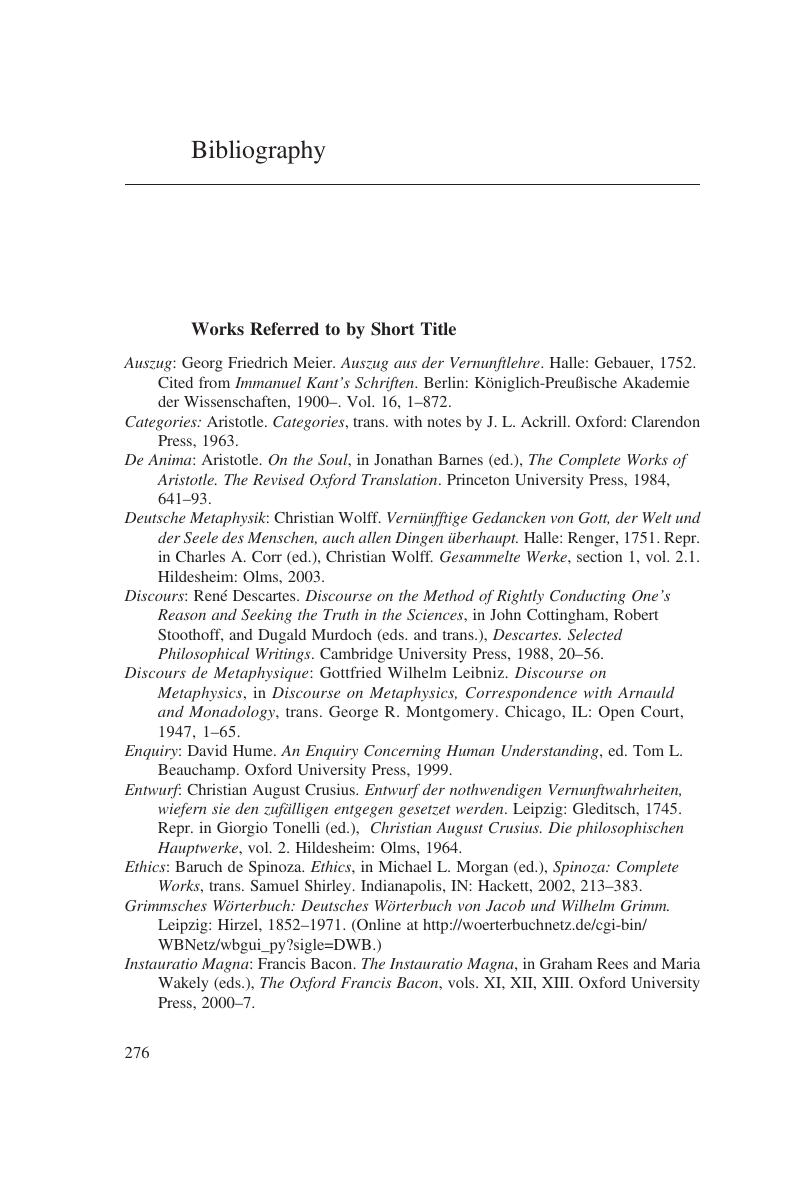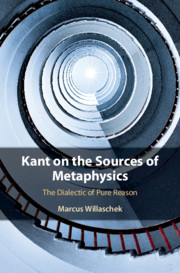Book contents
- Kant on the Sources of Metaphysics
- Kant on the Sources of Metaphysics
- Copyright page
- Dedication
- Contents
- Note on References and Citations
- Preface
- Introduction
- Part I From Reason to Metaphysics
- Part II The Other Side of the Transcendental Dialectic
- Postscript
- Bibliography
- Index of Names
- Index of Subjects
- References
Bibliography
Published online by Cambridge University Press: 09 November 2018
- Kant on the Sources of Metaphysics
- Kant on the Sources of Metaphysics
- Copyright page
- Dedication
- Contents
- Note on References and Citations
- Preface
- Introduction
- Part I From Reason to Metaphysics
- Part II The Other Side of the Transcendental Dialectic
- Postscript
- Bibliography
- Index of Names
- Index of Subjects
- References
Summary

- Type
- Chapter
- Information
- Kant on the Sources of MetaphysicsThe Dialectic of Pure Reason, pp. 276 - 290Publisher: Cambridge University PressPrint publication year: 2018



